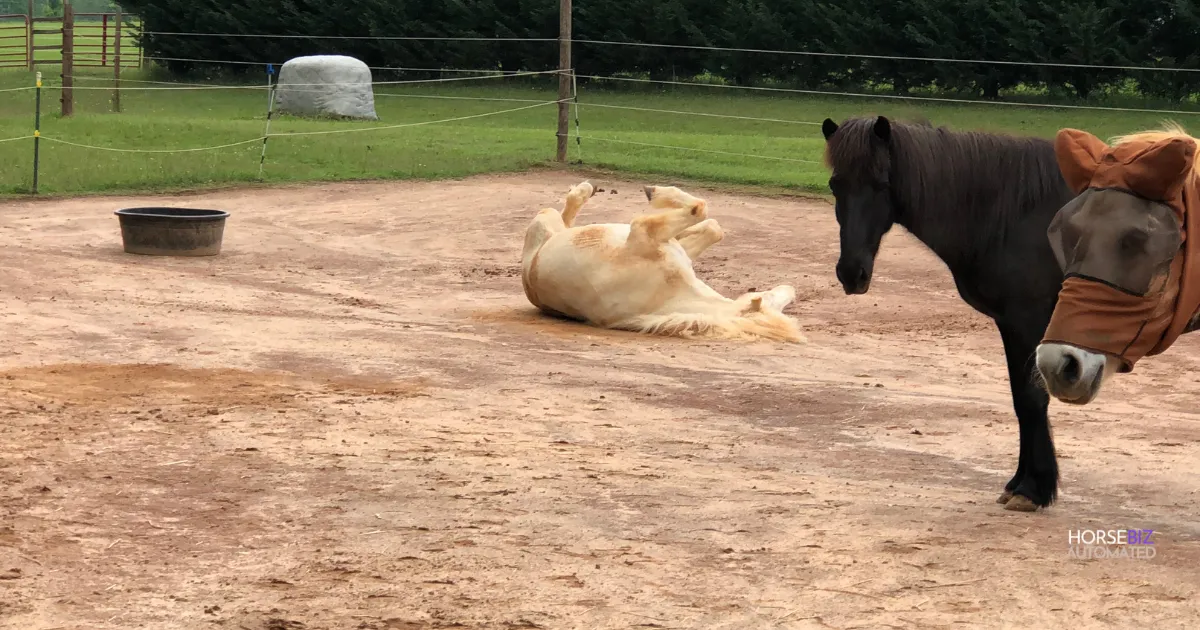BLOG

Finding Your Perfect Course Topic: From Heartfelt Passion to Purposeful Impact
At HorseBizAutomated, we understand that creating online courses can feel overwhelming. Many of you have expressed concerns about topics, pricing, and selling your courses. You want to increase your impact while reducing travel, but the technical aspects and decisions can feel daunting. We’re here to guide you through that process, step by step, starting with perhaps the most crucial element: choosing the right topic.
Why the Right Topic Matters
When you’re starting an online course, it’s easy to get ahead of yourself—pouring energy into content creation before really understanding the "who" and the "why." A common misstep we see is creating a massive course and then questioning why it isn’t resonating or selling. But don’t worry; you’re not alone in this! Together, we’ll simplify the process and help you discover a course topic that aligns with both your passions and your audience’s needs.
The Sweet Spot: Passion Meets Purpose
Think of your ideal course topic as the intersection of three essential elements:
Your Passion – What lights you up? What makes your heart soar when you talk about it?
Your Expertise – What knowledge or skills do you bring to the table?
Your Audience’s Needs – What problems do they have that your course can solve?
When all three of these elements intersect, you’ve found your sweet spot—a topic that’s not only meaningful to you but also valuable to your audience.
Expanding Beyond Your Current Audience
Often, as equestrian professionals, we orient ourselves to our immediate, local audience—what we teach in our barns or to clients within a small radius. But when it comes to creating an online course, you move from local to global. Your course is no longer limited by geography, meaning you can focus on what you truly care about without being constrained by the specific needs of your current clients.
This is where you can truly let your imagination and your heart go wild. Think about what really excites you—even if it’s outside the discipline you typically focus on. Some of our clients, for example, specialize in dressage but are passionate about broader topics, like the emotional rehabilitation of horses or helping horses develop a trusting partnership with humans.
Step 1: Let’s Start with Heart
The first step in creating a successful course is to tune into what brings you joy. Ask yourself, what moments in your work with horses (or clients) have filled you with a sense of deep fulfillment? Think back to times when everything flowed effortlessly, and you felt completely aligned with your values.
Take a moment to reflect on those experiences. Write down at least three that really stand out—moments where you were so immersed in the work that you would’ve done it for free, simply because it resonated with your core. These experiences are clues that point toward a course topic fueled by your passion.
For example, for one of our team members, the most fulfilling work was gentling wild horses. That first touch, when a horse that has been afraid of humans reaches out to trust, was a deeply emotional and transformative experience. This is the kind of heart-centered work that fuels passion and purpose, and it’s a perfect foundation for a course topic.
Step Two: Tap Into Your Expertise
After exploring your passion—the heart of your course creation process—it’s time to combine that with what you know best. This second piece of the puzzle focuses on your expertise. The question to ask yourself here is simple: What am I already really good at?
Even if you sometimes doubt yourself, it’s crucial to acknowledge your depth of knowledge. We see this with so many of our clients—they are deep experts in their field but still struggle to trust themselves. So, take a moment to step back and boast a little on paper. You’ve earned it!
What have you done countless times?
What could you confidently teach, knowing you’re a few steps ahead of your audience?
Even if you're still learning, you have expertise that your students don’t yet have, and that makes you the right teacher for them.
Don’t Let Perfection Hold You Back
In the horse world, true mastery is elusive. There’s always more to learn, but that doesn’t mean you aren’t an expert. Your audience doesn’t need the world’s best—they need someone relatable who is a few steps ahead of them.
Think of it this way: Grand Prix-level riders may struggle to teach a beginner how to tack up because they’ve been doing it automatically for decades. But you, who still remember learning those basics, are perfectly positioned to help someone at the start of their journey.
So, don’t underestimate what you know just because you’re not at the absolute peak of your field. People learn best from those they can relate to, and your unique experience is valuable.
Take a moment to write down three challenges you've helped others overcome. These could be fears or practical skills, like helping someone conquer their fear of cantering in the ring. This reflection will help clarify where your expertise shines.
Step Three: Know Your Audience
When creating an online course, you’re not just speaking to local clients—you’re addressing a global audience. This might seem daunting, but it’s empowering. Your job isn’t to know everything, just more than your students. Most of your potential learners will be beginners or hobbyists, so focus on helping those just a few steps behind you.
While your local clients might have diverse needs, online courses are about serving a specific, niche audience. Think about what you’ve enjoyed teaching locally, but tailor it to a global audience with a shared need.
What Does Your Audience Want? Selling Desire, Teaching Expertise
Now that you know your passion and expertise, consider what your audience desires. People buy courses based on the outcome they want, not just what they need. For example, someone afraid of cantering wants the joy of a smooth, fear-free ride—not just technical instructions. Your job is to connect their desire to the right skills.
People purchase based on their dreams. Your course should promise an exciting outcome, whether it’s mastering the canter or improving horse care. As an expert, guide them responsibly—but appeal to their desires first to create a course that truly resonates.
So… What Action Steps Can You Take to Build Your Course with Confidence?
Identify Your Ideal Audience: Start by defining the group that sits in the sweet spot between what you're passionate about, what you're an expert in, and who needs it the most. Understand their struggles, their needs, and where they want to go. This is crucial for creating a course that speaks to them on a personal level, making them feel understood and supported.
Talk to Your Audience: Engage in conversations, whether through social media, direct messages, or interviews, to get real insight into their challenges. Knowing their pain points ensures you create a course that resonates deeply with them.
Simplify for Success: Break your course down into small, manageable steps. Just like training a horse, small wins build confidence. Don’t overwhelm your audience—focus on delivering bite-sized lessons that lead to meaningful progress. Remember, your audience wants to feel empowered, not overloaded.
Craft a Clear Outcome: Define the specific, achievable result your course will deliver. Whether it's "cantering without fear" or "building a stronger partnership with your horse," make sure the goal is clear, attainable, and speaks to the heart of what your audience truly desires.
Allow for Evolution: Your course doesn't need to be perfect on the first try. Give yourself permission to evolve your content based on feedback and experiences. Your course will grow and improve as you continue to learn from your students.
Start with these steps, and watch as your course not only helps others but also grows into something truly special.
At HorseBizAutomated, we’re here to help you every step of the way—from discovering your ideal course topic to launching it successfully. You’ve got the heart, the knowledge, and the understanding of what your audience wants. Now, let’s turn that into a course that changes lives.
Don't miss your chance to finally create that equine course you've been dreaming about! 🐴 Our FREE 5-Day Challenge: Create Your Perfect Equine Course Outline starts on October 14th. We’ll guide you step-by-step through everything you need to build a course that reflects your passion and expertise. Click here to learn more!

Finding Your Perfect Course Topic: From Heartfelt Passion to Purposeful Impact
At HorseBizAutomated, we understand that creating online courses can feel overwhelming. Many of you have expressed concerns about topics, pricing, and selling your courses. You want to increase your impact while reducing travel, but the technical aspects and decisions can feel daunting. We’re here to guide you through that process, step by step, starting with perhaps the most crucial element: choosing the right topic.
Why the Right Topic Matters
When you’re starting an online course, it’s easy to get ahead of yourself—pouring energy into content creation before really understanding the "who" and the "why." A common misstep we see is creating a massive course and then questioning why it isn’t resonating or selling. But don’t worry; you’re not alone in this! Together, we’ll simplify the process and help you discover a course topic that aligns with both your passions and your audience’s needs.
The Sweet Spot: Passion Meets Purpose
Think of your ideal course topic as the intersection of three essential elements:
Your Passion – What lights you up? What makes your heart soar when you talk about it?
Your Expertise – What knowledge or skills do you bring to the table?
Your Audience’s Needs – What problems do they have that your course can solve?
When all three of these elements intersect, you’ve found your sweet spot—a topic that’s not only meaningful to you but also valuable to your audience.
Expanding Beyond Your Current Audience
Often, as equestrian professionals, we orient ourselves to our immediate, local audience—what we teach in our barns or to clients within a small radius. But when it comes to creating an online course, you move from local to global. Your course is no longer limited by geography, meaning you can focus on what you truly care about without being constrained by the specific needs of your current clients.
This is where you can truly let your imagination and your heart go wild. Think about what really excites you—even if it’s outside the discipline you typically focus on. Some of our clients, for example, specialize in dressage but are passionate about broader topics, like the emotional rehabilitation of horses or helping horses develop a trusting partnership with humans.
Step 1: Let’s Start with Heart
The first step in creating a successful course is to tune into what brings you joy. Ask yourself, what moments in your work with horses (or clients) have filled you with a sense of deep fulfillment? Think back to times when everything flowed effortlessly, and you felt completely aligned with your values.
Take a moment to reflect on those experiences. Write down at least three that really stand out—moments where you were so immersed in the work that you would’ve done it for free, simply because it resonated with your core. These experiences are clues that point toward a course topic fueled by your passion.
For example, for one of our team members, the most fulfilling work was gentling wild horses. That first touch, when a horse that has been afraid of humans reaches out to trust, was a deeply emotional and transformative experience. This is the kind of heart-centered work that fuels passion and purpose, and it’s a perfect foundation for a course topic.
Step Two: Tap Into Your Expertise
After exploring your passion—the heart of your course creation process—it’s time to combine that with what you know best. This second piece of the puzzle focuses on your expertise. The question to ask yourself here is simple: What am I already really good at?
Even if you sometimes doubt yourself, it’s crucial to acknowledge your depth of knowledge. We see this with so many of our clients—they are deep experts in their field but still struggle to trust themselves. So, take a moment to step back and boast a little on paper. You’ve earned it!
What have you done countless times?
What could you confidently teach, knowing you’re a few steps ahead of your audience?
Even if you're still learning, you have expertise that your students don’t yet have, and that makes you the right teacher for them.
Don’t Let Perfection Hold You Back
In the horse world, true mastery is elusive. There’s always more to learn, but that doesn’t mean you aren’t an expert. Your audience doesn’t need the world’s best—they need someone relatable who is a few steps ahead of them.
Think of it this way: Grand Prix-level riders may struggle to teach a beginner how to tack up because they’ve been doing it automatically for decades. But you, who still remember learning those basics, are perfectly positioned to help someone at the start of their journey.
So, don’t underestimate what you know just because you’re not at the absolute peak of your field. People learn best from those they can relate to, and your unique experience is valuable.
Take a moment to write down three challenges you've helped others overcome. These could be fears or practical skills, like helping someone conquer their fear of cantering in the ring. This reflection will help clarify where your expertise shines.
Step Three: Know Your Audience
When creating an online course, you’re not just speaking to local clients—you’re addressing a global audience. This might seem daunting, but it’s empowering. Your job isn’t to know everything, just more than your students. Most of your potential learners will be beginners or hobbyists, so focus on helping those just a few steps behind you.
While your local clients might have diverse needs, online courses are about serving a specific, niche audience. Think about what you’ve enjoyed teaching locally, but tailor it to a global audience with a shared need.
What Does Your Audience Want? Selling Desire, Teaching Expertise
Now that you know your passion and expertise, consider what your audience desires. People buy courses based on the outcome they want, not just what they need. For example, someone afraid of cantering wants the joy of a smooth, fear-free ride—not just technical instructions. Your job is to connect their desire to the right skills.
People purchase based on their dreams. Your course should promise an exciting outcome, whether it’s mastering the canter or improving horse care. As an expert, guide them responsibly—but appeal to their desires first to create a course that truly resonates.
So… What Action Steps Can You Take to Build Your Course with Confidence?
Identify Your Ideal Audience: Start by defining the group that sits in the sweet spot between what you're passionate about, what you're an expert in, and who needs it the most. Understand their struggles, their needs, and where they want to go. This is crucial for creating a course that speaks to them on a personal level, making them feel understood and supported.
Talk to Your Audience: Engage in conversations, whether through social media, direct messages, or interviews, to get real insight into their challenges. Knowing their pain points ensures you create a course that resonates deeply with them.
Simplify for Success: Break your course down into small, manageable steps. Just like training a horse, small wins build confidence. Don’t overwhelm your audience—focus on delivering bite-sized lessons that lead to meaningful progress. Remember, your audience wants to feel empowered, not overloaded.
Craft a Clear Outcome: Define the specific, achievable result your course will deliver. Whether it's "cantering without fear" or "building a stronger partnership with your horse," make sure the goal is clear, attainable, and speaks to the heart of what your audience truly desires.
Allow for Evolution: Your course doesn't need to be perfect on the first try. Give yourself permission to evolve your content based on feedback and experiences. Your course will grow and improve as you continue to learn from your students.
Start with these steps, and watch as your course not only helps others but also grows into something truly special.
At HorseBizAutomated, we’re here to help you every step of the way—from discovering your ideal course topic to launching it successfully. You’ve got the heart, the knowledge, and the understanding of what your audience wants. Now, let’s turn that into a course that changes lives.
Don't miss your chance to finally create that equine course you've been dreaming about! 🐴 Our FREE 5-Day Challenge: Create Your Perfect Equine Course Outline starts on October 14th. We’ll guide you step-by-step through everything you need to build a course that reflects your passion and expertise. Click here to learn more!

© Copyright *HorseBizAutomated 2024
